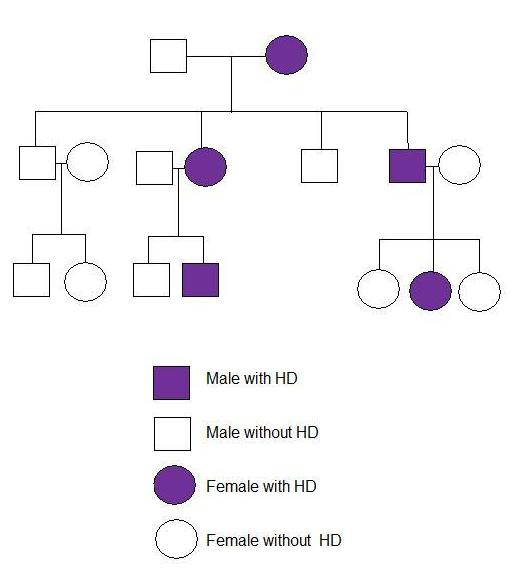Inheriting Huntington's
Huntington’s disease is an autosomal dominant disease. This means that only one parent is required to have the disease in order for it to be inherited.
The term "autosomal" refers to the type of chromosome the mutation is found on; 22 out of the 23 chromosomes are autosomal. The last chromosome is the sex chromosome.
As there are 2 copies of each gene there are different patterns for a diseases inheritance. Dominant mutations and recessive mutations. A dominant mutation, as it implies, is dominant and overrides the function of the normal wild type gene and only one copy of the mutated gene is required for the disease. Where as a recessive gene is the exact opposite and two mutated copies of the gene are required, therefore often if a patient only has one recessive mutated gene they will experience no symptoms of a disease.
This also means that a recessive disease can only be inherited if both parents have a copy of the mutated gene whereas a dominant disease such as Huntington’s only requires one parent to have the mutation in order for the disease to manifest. This form of dominant inheritance is illustrated in the diagram below;

Probability of inheriting Huntington’s disease
The chances of inheriting an autosomal dominant disease depend on how many faulty copies of the gene the parents have.
If only one parent, has only one mutated Huntingtin gene then the chance of the disease being passed on is 50%
If both parents have one mutated Huntingtin gene the chance of inheriting the disease is 75%
If one parent has two mutated copies of the Huntingtin gene (both their parents must have had the diseases) the chance of inheriting the disease is 100%
